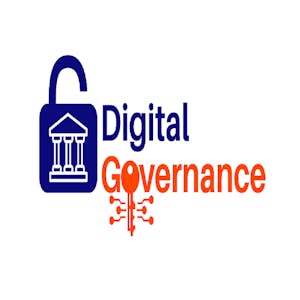Embark on a transformative journey through the Digital Governance course, delving into the intersection of technology, law, and politics. Uncover the disruptive effects of emerging technologies on society while addressing legal and political challenges.
Designed by an international community of legal experts, this course promises a blend of fun, inspiration, and valuable knowledge in the domain of digital governance.
Certificate Available ✔
Get Started / More Info
Embark on a comprehensive journey through the Digital Governance course, exploring e-democracy, automation, online courts, competition in digital markets, and data ownership.
Delve into the course with a warm welcome and gain insights into the impact of emerging technologies on law and politics. Explore the developments in EU legislation landscape and the future of surveillance.
Uncover the risks of the digital era and the need for law to regulate these risks. Gain an understanding of how data science and AI are transforming legal practice and research, and explore the role of law in the digital age.
Gain insights into the evolution and future of e-democracy, collaborative e-rulemaking, and the pitfalls and challenges of e-democracy. Explore e-democracy platforms across the globe and the impact of social bots.
Explore the automation of government administration, surveillance technology for the public good, and the transformation of administrative discretion and constitutional control through ICT. Delve into the empirical case of predictive policing in Berlin and the automation of social security and tax.
Discover the promise of online courts in improving access to justice through technology. Explore online dispute resolution, access to justice in state courts, and the role of digital choice architecture in online courts.
Understand the dynamics of competition and regulation in the digital economy, the principles of competition law, and the application of competition law in the era of tech giants. Gain insights into net neutrality, regulation, and market power.
Gain an understanding of data ownership, property rights, and data governance design. Explore the relevance of property rights and the impact of GDPR on data ownership.
Conclude the course with an in-depth analysis of the case involving Facebook and the German Competition Authority, exploring the implications and outcomes of this significant legal matter.
Cloud Computing Law Specialization explores legal rights and obligations in cloud services. Learn to analyze contracts, data protection, law enforcement access,...
An Introduction to American Law offers a comprehensive overview of six key areas of American law, providing insight into the complexities and distinctive features...
This course offers an in-depth exploration of the international courts and tribunals in The Hague, examining their functions, challenges, and potential contributions...
La science forensique au tribunal: témoin digne de foi ?